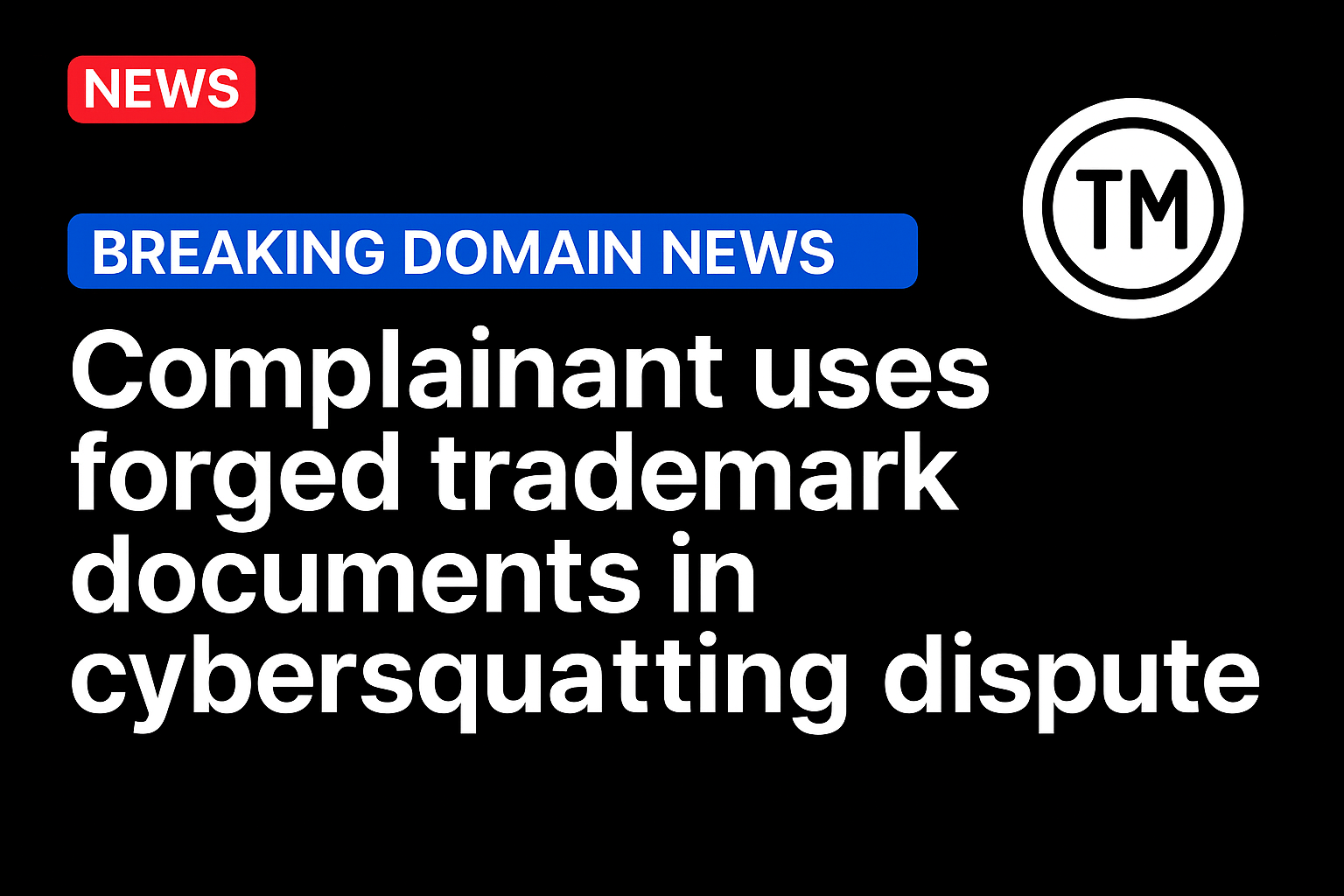
Panelist calls it “one of the most egregious” reverse domain name hijacking cases.
A World Intellectual Property Organization panelist has determined that a Complainant used forged U.S. trademark documents to try to win a UDRP.
AK Associates, LLC, and Alina Chung filed the dispute against the domain name ChafeZero.com.
The Complainants initially attempted to purchase the domain name through a brokerage service, which appears to have been GoDaddy. The domain owner rejected the $200 offer and said the domain was not for sale. Despite this, the Complainants argued that the domain was registered to be sold.
More troublesome is that the Complainants apparently filed forged documents in their dispute.
The Complainants filed two trademark applications starting in July this year. Obviously, none of them have been registered in such a short timeline.
Yet they submitted what panelist Steven Maier described as:
what purports to be a certificate of registration issued by the United States Patent and Trademark Office (“USPTO”) stating that the mark CHAFEZERO was registered under registration number 99307329 on July 29, 2025. The document includes what appears to be an official seal, together with the signature of the former Director of the United States Patent and Trademark Office;
Maier determined this must be a forgery since the trademark is merely an application.
The Complainants also included other communications from the U.S. Patent and Trademark Office that Maier ascertained were forged.
In finding reverse domain name hijacking, he wrote:
The Panel can only reasonably conclude, therefore, that the Complainants have attempted to pervert the process of the UDRP by the submission of forged documents in support of their Complaint, which they know, or should have known, had no reasonable prospect of success. The Panel further notes the apparently false certification provided by the Complainants, namely, that the information contained in the Complaint was complete and accurate to the best of their knowledge, and was not being presented for any improper purpose. Accordingly, the Panel has no hesitation finding this to be a case of Reverse Domain Name Hijacking, and indeed one of the most egregious such cases that the Panel has encountered.
Source: https://domainnamewire.com/




